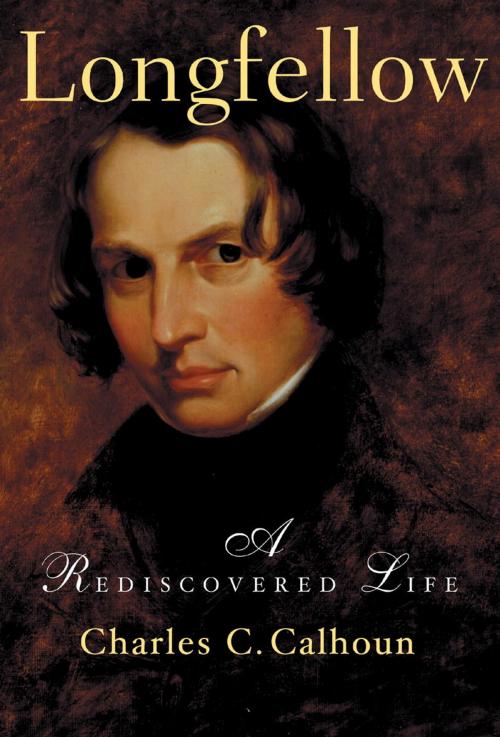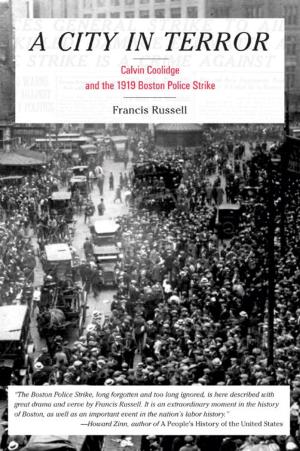Longfellow
A Rediscovered Life
Fiction & Literature, Literary Theory & Criticism, Poetry History & Criticism, Nonfiction, History, Americas, United States, 19th Century, Biography & Memoir, Literary| Author: | Charles C. Calhoun | ISBN: | 9780807070413 |
| Publisher: | Beacon Press | Publication: | June 28, 2016 |
| Imprint: | Beacon Press | Language: | English |
| Author: | Charles C. Calhoun |
| ISBN: | 9780807070413 |
| Publisher: | Beacon Press |
| Publication: | June 28, 2016 |
| Imprint: | Beacon Press |
| Language: | English |
Charles C. Calhoun's Longfellow gives life, at last, to the most popular American poet who ever lived, a nineteenth-century cultural institution of extraordinary influence and the"one poet average, nonbookish Americans still know by heart" (Dana Gioia).
Calhoun's Longfellow emerges as one of America's first powerful cultural makers: a poet and teacher who helped define Victorian culture; a major conduit for European culture coming into America; a catalyst for the Colonial Revival movement in architecture and interior design; and a critic of both Puritanism and the American obsession with material success. Longfellow is also a portrait of a man in advance of his time in championing multiculturalism: He popularized Native American folklore; revived the Evangeline story (the foundational myth of modern Acadian and Cajun identity in the U.S. and Canada); wrote powerful poems against slavery; and introduced Americans to the languages and literatures of other lands.
Calhoun's portrait of post-Revolutionary Portland, Maine, where Longfellow was born, and of his time at Bowdoin and Harvard Colleges, show a deep and imaginative grasp of New England cultural history. Longfellow's tragic romantic life-his first wife dies tragically early, after a miscarriage, and his second wife, Fannie Appleton, dies after accidentally setting herself on fire-is illuminated, and his intense friendship with abolitionist and U.S. senator Charles Sumner is given as a striking example of mid-nineteenth-century romantic friendship between men. Finally, Calhoun paints in vivid detail Longfellow's family life at Craigie House, including stories of the poet's friends-Hawthorne, Emerson, Dickens, Fanny Kemble, Julia Ward Howe, and Oscar Wilde among them.
Charles C. Calhoun's Longfellow gives life, at last, to the most popular American poet who ever lived, a nineteenth-century cultural institution of extraordinary influence and the"one poet average, nonbookish Americans still know by heart" (Dana Gioia).
Calhoun's Longfellow emerges as one of America's first powerful cultural makers: a poet and teacher who helped define Victorian culture; a major conduit for European culture coming into America; a catalyst for the Colonial Revival movement in architecture and interior design; and a critic of both Puritanism and the American obsession with material success. Longfellow is also a portrait of a man in advance of his time in championing multiculturalism: He popularized Native American folklore; revived the Evangeline story (the foundational myth of modern Acadian and Cajun identity in the U.S. and Canada); wrote powerful poems against slavery; and introduced Americans to the languages and literatures of other lands.
Calhoun's portrait of post-Revolutionary Portland, Maine, where Longfellow was born, and of his time at Bowdoin and Harvard Colleges, show a deep and imaginative grasp of New England cultural history. Longfellow's tragic romantic life-his first wife dies tragically early, after a miscarriage, and his second wife, Fannie Appleton, dies after accidentally setting herself on fire-is illuminated, and his intense friendship with abolitionist and U.S. senator Charles Sumner is given as a striking example of mid-nineteenth-century romantic friendship between men. Finally, Calhoun paints in vivid detail Longfellow's family life at Craigie House, including stories of the poet's friends-Hawthorne, Emerson, Dickens, Fanny Kemble, Julia Ward Howe, and Oscar Wilde among them.







![Cover of the book Beaver At His Parents' [Episode 2] by Charles C. Calhoun](https://www.kuoky.com/images/2016/january/300x300/1230000869942-SUcQ_300x.jpg)







